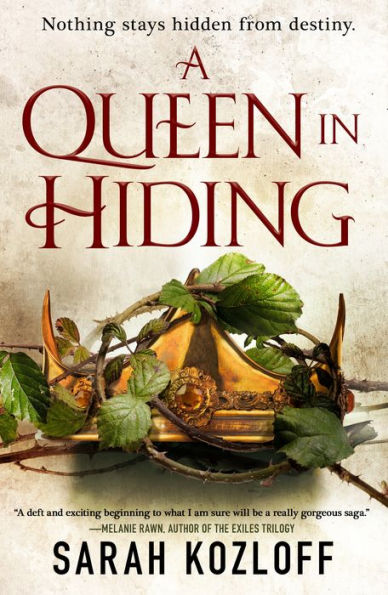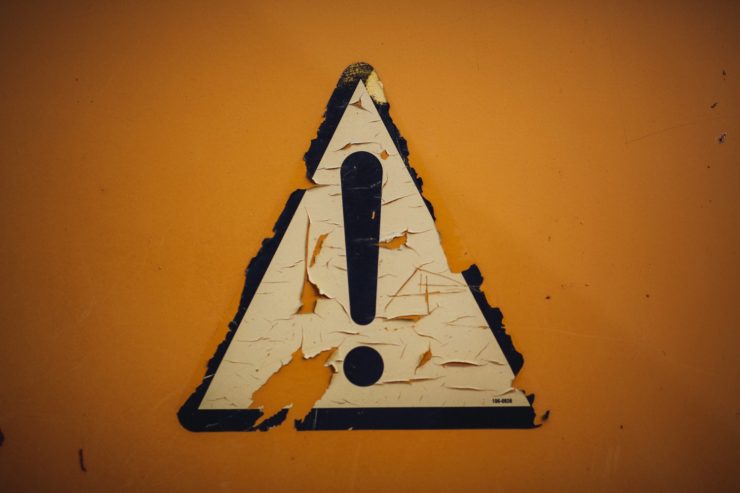Some people shriek at the sight of a spider. Others can’t get into elevators. For many contemporary consumers of literature and film, the merest hint of knowing what’s ahead sends them into panic mode. Where did this “spoilerphobia” come from? Is it rational?
Well, like most aesthetic questions, the answer is…complicated.
As an ancient mariner, I first noticed this phobia when I was teaching film history. I often wanted to talk to my students about a movie that they hadn’t seen and possibly never would. When I would start to describe a turn in the plot, the students would mockingly place their hands over their ears.
Spoilerphobia didn’t just infiltrate my classrooms. In 2010 fans and showrunners publicly pilloried TV critic Alessandra Stanley for revealing plot details about Mad Men. Goodreads reviews and Reddit threads hide and warn about spoilers.
If language is our guide, spoilerphobia appears to be a relatively new phenomenon. Lexicographers date the origin of the term “spoiler alert” to the late 1970s and the growth of the internet. In an article on Medium, Alex Mell-Taylor offers insight into how spoilerphobia has been deployed to hype current releases and shield them from criticism.
Certainly, spoiler censorship has conquered the internet, the playground of younger generations. Knowing about the hot new book or movie can embody a certain cultural “one-upmanship” and indicate class privilege. Those with the money, time, freedom, and motivation to stay on top of current releases or buy new hardcovers may obtain an experience denied to those who have to wait for library copies or cheaper venues. So, the power to “spoil” lies disproportionately in the hands of those with elite access—like the critic—while anxiety about being deprived of an “untainted” experience affects people with less access.
In my classes, students whose families subscribed to HBO had an edge over those of us (including me) who didn’t. If they wanted to, the HBO students could have given away the shocking turn of “The Red Wedding” episode of Game of Thrones. (Except—I was armored against any such a loss because I had already read the books.)
At any rate, I feel that both “the privileged” and “the deprived” are over-emphasizing the wrong elements.
Does revealing plot details ruin anything? Are plots analogous to glasses of milk that go bad if they sit too long? In the classroom, I would brush aside my students’ resistance by declaring—with deliberate hyperbole—“Plot doesn’t matter!”
After all, most texts more or less give away their own endings. With many stories, readers intuit from the moment they start more or less where they will end, taking cues from genre conventions, advertising, titles, and blurbs. Were you really ever in any doubt that the humans of Westeros would defeat the White Walkers? Did you think that the women pilots in The Calculating Stars, Book I of The Lady Astronauts, would be forever barred from flying?
Having expectations fulfilled provides its own special pleasure. We love adaptations. There’s no mystery left as to what is going to happen in Pride and Prejudice (spoiler alert: the lovers get together). But we watch each new iteration to discover what this Elizabeth Bennet and this Mr. Darcy are going to be like, which characteristics these actors highlight. How will this version capture their misunderstandings and their passion? As moviemakers know too well, the more familiar we are with the story or genre, the more likely we are to go see the movie. Remakes, like adaptations, multiply like rabbits. And most of us enjoy rereading and re-watching, long after we know all the turns of the plot: we take particular pleasure in waiting for key scenes.
Only a few stories—commonly called “twist” novels or films—manage to shock us. No Way Out (1987), The Usual Suspects (1995), and Fight Club (1999) became famous for their subversive endings; in novels, one could point to Scott Turow’s Presumed Innocent (1990), Anne Tyler’s One True Thing (1994), Jodi Picoult’s My Sister’s Keeper (2004), or Gillian Flynn’s Gone Girl (2012). Twist endings—particularly common in mysteries, thrillers, and horror—have become more popular in recent decades.
Twist stories work via a gimmick; they withhold information to misdirect us, the way a magician performs a trick. If part of the pleasure of consuming a narrative is thinking we are smart enough to solve an enigma, successful twists rock us back on our heels and prove that we readers are not as perceptive as we thought we were, and the author/magician is fully in charge. When they succeed our mouths fall open and we experience awe at how masterfully we’ve been hoodwinked.
Even with such limit cases, what I most want to do with twists is go back, re-watch, and figure out where and how the unreliable narrator led me astray. My enjoyment of a story is not ruined by knowing ahead of time the information that’s been so zealously kept hidden. By now nearly everyone in the world must know that “Rosebud” is a sled—Charles Schultz drew a memorable “Peanuts” cartoon strip on this topic—but people still watch Citizen Kane. After all, as Thompson says, no one word can explain a person’s life. There’s a downside in putting so much emphasis on the shock of a twist: one of my friends mentioned that because he’s heard about the reveal of The Sixth Sense, now he doesn’t need to see the movie. This saddens me because he’ll miss out on a clever and moving film, with good performances, and a truly fascinating narrative device.
Psychologists have done experiments with “spoiled” and “unspoiled” short stories, experiments that have yielded contradictory results, perhaps because readers emphasize diverse aspects of narrative. I can’t be alone in enjoying the texture of the world-building, the way characters develop, the themes that rise to the surface, or the social commentary. I savor the style of the writing and all that it conveys about the narrative voice. In movies, the music, cinematography, dialogue, or acting are often more satisfying to me than the (rather predictable) plot beats. “How is this story told?” is as important to me as where it concludes. I can give away the fact that Mrs. Ramsey dies in Virginia Woolf’s To The Lighthouse, but in doing so I’ve hardly prepared you for the breathtaking flow of the novel’s “Time Passes” section.
I do understand that part of the “how” of stories is “how the plot develops.” As scholars have analyzed, “What’s going to happen next?” is one of the engines of narrative, it draws us forward, creating a chain of cause and effect, little mysteries and gaps that must be filled in, enticing us to keep reading.
Speaking now not about endings per se but surprises we stumble across as the story unfolds, these turns may catch us off guard. Who is unmasked as a traitor, spy, or ally? Game of Thrones—among other things—is about treachery. Enigmas constantly arise as to who is loyal to whom and who knows about which betrayal. Sometimes the characters are misled; sometimes the viewer. I was quite surprised by the way the “Trial of Arya” in Winterfell in Season 7 suddenly turns into the “Trial of Littlefinger.”
Surprise can indeed be one of the great pleasures of fiction, the moment where you say to yourself—“Whoa, I didn’t see that coming!” And narratives that shake the ground under the readers’ feet create a certain heightened, tingling tension: “If that can happen, what else is this author going to do? What other conventions will she defy?” If the biggest star and central character, Janet Leigh (Marion Crane) is killed off half-way through Hitchcock’s Psycho, and Sean Bean (Eddard Stark) is beheaded despite Joffrey’s promise in Game of Thrones, then we’d better be on our guard for the rest of the story.
Buy the Book


A Queen in Hiding
Of course, I understand that revelations and endings do matter. I just don’t think they matter as much as people think they do or for every story. What I object to most about admonitions never to reveal plot is the implicit evaluation that surprise is everything, vastly more important than every other element of the work.
Because I had read the novels, my experience of Game of Thrones differed from the experience of viewers new to Westeros. For one thing, I was less confused (!) and I had a better grasp of the characters and Houses. Perhaps my enjoyment of the series was enhanced over a first-time since I anticipated key events.
I believe we can have more meaningful discussions if we push through the dictates of spoiler phobia. When I taught the 1956 version of Invasion of the Body Snatchers, in which the protagonist (Kevin McCarthy) survives to warn the world about the pods, I’d tell the students about the 1978 version in which the heroine approaches the protagonist (now Donald Sutherland) at the end, believing that he is part of the resistance, only to discover… he too has been taken over! The divergent endings tell us so much about the decline in American optimism between 1956 and 1978. Or, summarizing the genre conventions of a romantic comedy, I’d want the class to know about My Best Friend’s Wedding (1997), in which the girl doesn’t get the guy, and we accept this as the right conclusion.
If we are going to share our experiences of stories, we must be free to mention everything that we find relevant without fear of censure. Talking about the plot isn’t automatically a malicious flaunting of privilege. These days, with so many options to meet every taste, we’ve all seen or read works that have eluded our friends. To venerate only surprise is to downgrade every other pleasure. Oftimes I can seduce someone into watching a movie by describing a particularly noteworthy plot turn. (Don’t you want to see My Best Friend’s Wedding now? It sheds light on the whole genre.)
Especially these days, as our viewing and reading choices multiply exponentially and we share so little common ground, let’s break through this artificial, self-imposed censorship that holds us back. We may find that knowing more rather than less about a plot entices us to experience a story more richly.
Sarah Kozloff is Professor Emerita of Film from Vassar College and the author of the epic fantasy series The Nine Realms published by Tor/Macmillan.










